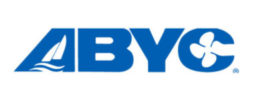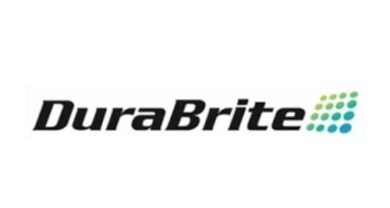Polaris exits marine business
MINNEAPOLIS – A little more than one month after unveiling three new 2005 personal watercraft and several updated sport boats, Polaris Industries Inc. said today it had ceased manufacturing marine products, effective immediately, and is getting out of the marine business.
The company said in a press release this morning that it would assist dealers in liquidating existing inventories and continue to provide replacement parts, service and warranty to marine dealers and customers. Polaris also said its decision does not affect any of its other product lines.
“This was an extremely difficult decision for the Board of Directors of Polaris because our people are very proud and we have a proven record of succeeding in all we do,” said Tom Tiller, Polaris president and CEO. “However, the personal watercraft industry and our position within the market simply is not where we need it to be for this division to be viable. This decision is designed to foster long-term growth and shareholder value.”
According to Tiller’s account in a conference call with investors today, the Polaris PWC business lost money essentially every year since its introduction in 1992. It generated $171 million in revenue in 1996, its peak year, and by 2003 that number had fallen to $53.5 million in revenue. Tiller said the company lost a total of $120 million over the duration of its existence, and showed a pre-tax loss of $13.2 million in 2003.
Over the past few years, the company’s marine division has experienced a number of positive milestones, but they were often met with a continued decrease in sales that mirrored that of the entire industry. The company has marine division sales increases of as much as 157 percent as recently as second quarter of 2003, but sales were down by 12 percent for year-end 2002 and only increased one percent for the year ending 2003.
Many new initiatives at Polaris proved to have little effect on the decline. A new management team, led by recently departed General Manager Ron Bills created Polaris’ best line of personal watercraft to date in addition to establishing many partnerships that were designed to minimize costs yet expand the company’s reach in the marine market. While some of those decisions proved sound, like that of the introduction of the MSX line in 2002, others like the introduction of a stand-up and a sport boat line caused many industry insiders to question the company’s direction. The stand-up market had all but disappeared from the shrinking PWC industry, and the jet boat market had declined right alongside its PWC brethren.
“We did everything that we know how to do to try to make this business successful,” Tiller said. “But the reality was that once got through the MSX launch, the market continued to shrink, Honda came into the market, which didn’t help things, we’re facing emissions regulations, and the associated powertrain costs go up, the development costs go up, and there was no sign, even with the introduction of not just our four strokes, but competitive four strokes, that things were going to get better in terms of overall market growth. And competitors continued to price even more aggressively.
“On the remaining (97 percent) of the business, things are going very, very well. Our ATV business is doing super. We’re introducing new products hand over fist. Snowmobiles have come back nicely this year. Victory Motorcycle business is growing leaps and bounds, and utility vehicles are doing very, very well.”
In 2003, sales from its marine division comprised only 3 percent of total sales for Polaris. The company said less than 25 percent of its North American dealers carry marine products, and that those products generally make up only a small percentage of their overall business.
“As technology and the distribution channel have evolved, the marine division’s lack of commonality with other Polaris product lines has created challenges for Polaris and its dealer base,” the company said in its release.
“This decision will ultimately strengthen Polaris’ position in the powersports industry as we focus our research and development dollars and other resources on those product lines with greater growth potential, including our all-terrain vehicles, utility vehicles, snowmobiles, Victory motorcycles and parts, garments and accessories,” Tiller said.
Job loss
Tiller said the company had weighed the impact its actions would have on its employees and the communities in which they live, calling them “an important consideration for our organization.”
“The decision to exit the marine business will have minimal impact on the employment level at our manufacturing facilities,” Tiller said.
The marine division employs 35 full time employees and 70 seasonal production employees in Medina, Minn., and Spirit Lake, Iowa. The assembly line in the Spirit Lake manufacturing facility that currently produces PWC and ATVs on a seasonal basis will be converted to focus exclusively on ATVs, and all hourly employees will be retained, Polaris said
Fewer than 20 employees are expected to leave Polaris as a result of its decision, according to Polaris.
Financial fallout
Polaris expects to record a loss on disposal of discontinued operations during the third quarter 2004 of approximately $36 million (or $24 million after tax, which represents $0.53 per diluted share) related to its decision to discontinue its marine division.
That loss includes the estimated costs to support the dealers in selling their remaining inventory, additional incentives and discounts to encourage consumers to purchase remaining products, the disposal of factory inventory, tooling, and other physical assets, and the cancellation of supplier arrangements.
Polaris said the marine division inventory at dealerships is at its lowest level in a number of years, which will minimize the financial impact of this decision on Polaris and its dealers.
PWIA comments
Elinore Boeke, the public relations manager for the Personal Watercraft Industry Association, issued the following statement this morning regarding the Polaris announcement:
“We are sorry to see Polaris go, and we wish them well. There are many internal business factors that go into what must have been a difficult decision for Polaris, and we do not anticipate that any other PWC manufacturer will follow suit.
“The personal watercraft market is strong, with sales seeing their first annual increase since they peaked in 1995; current annual sales are over 80,000. As PWC have become larger (75 percent of sales are 3-passenger vessels) and cleaner, they are the vessel of choice for American families who find PWC an affordable way to spend time together on the water while being easy to store, transport and maintain.
Even America’s National Parks are recognizing the technological advances made by PWC manufacturers in terms of reduced sound and emissions; just today, Chickasaw National Recreation Area in Oklahoma became the seventh unit of the National Park system to re-allow personal watercraft based on the results of a positive environmental assessment.”
- For more of the latest news, click here.




